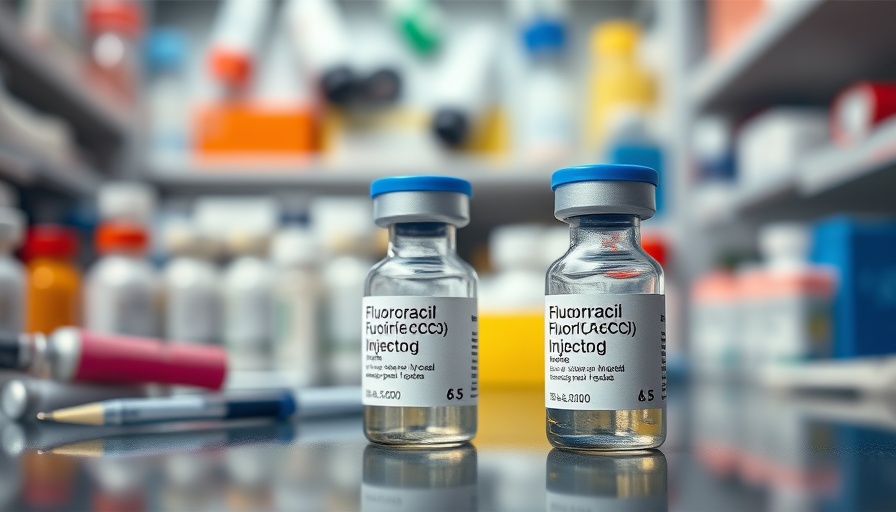
The Hidden Dangers of Common Chemotherapy Drugs
Chemotherapy is often hailed as a lifeline for cancer patients, but the story of JoEllen Zembruski-Ruple highlights the critical need for greater awareness about the drugs prescribed and their potential risks. Zembruski-Ruple’s tragic experience sheds light on the severe consequences of enzyme deficiencies related to chemotherapy drugs like capecitabine and fluorouracil, known as 5-FU.
Understanding Genetic Testing for Better Outcomes
Despite advancements in cancer treatment, not all patients benefit equally. Zembruski-Ruple's journey serves as a crucial reminder of how genetic testing can dramatically influence treatment outcomes. Doctors can test for enzyme deficiencies before administering chemotherapy, enabling tailored treatment plans that could save lives. Unfortunately, this critical step is often overlooked. For those at risk, a simple test could avoid deadly consequences.
Limited Awareness and Its Implications
The lack of communication surrounding potential risks and available testing is alarming. Zembruski-Ruple’s partner, Richard Khavkine, voiced his frustrations about not being informed about the tests that could have prevented this tragedy. This situation calls into question the ethical obligations of healthcare providers to ensure patients—and their families—are adequately informed about treatment risks, particularly when effective diagnostic tests exist.
The Cost of Inaction in Cancer Treatment
Another layer to this disturbing narrative is the financial aspect of cancer treatment. While a test to identify the enzyme deficiency could help mitigate risks, many are not seeking FDA approval. The implications of avoiding such tests not only impact individual patients but also the healthcare system at large, which continues to grapple with high treatment failure rates and the emotional toll on families.
Innovation in Cancer Treatment: The Future of Companion Diagnostics
The evolution of cancer treatment shows promising trends, with newer therapies sometimes including companion diagnostics, which help determine if a drug is suitable for a patient. However, for older medications like 5-FU and capecitabine, there hasn't been enough momentum to develop similar testing protocols. The question remains: how can we push for innovation in this area to enhance patient safety?
A Call for Action in the Healthcare Industry
In the wake of such cases, there is a pressing need for the healthcare industry to prioritize patient education and empower patients with the knowledge they need to advocate for their health. Just as technology in wellness is advancing rapidly, the same innovation must apply to cancer treatment protocols to prevent errors that lead to tragic outcomes like that of Zembruski-Ruple.
Conclusion: The Path Forward in Cancer Treatment
Moving forward, it is essential for healthcare professionals and policymakers to emphasize patient advocacy and education, integrate genetic testing into standard practice, and ensure that safety measures are not an afterthought in cancer treatment. As technology advances, so should our strategies to mitigate risks associated with chemotherapy drugs. Only then can we have confidence that the fight against cancer is equipped with every possible tool to save lives.
Take action by advocating for genetic testing in your own healthcare discussions, ensuring that you or your loved ones are not at risk of preventable harm. Awareness saves lives.
 Add Row
Add Row  Add
Add 




 Add Row
Add Row  Add
Add 

Write A Comment